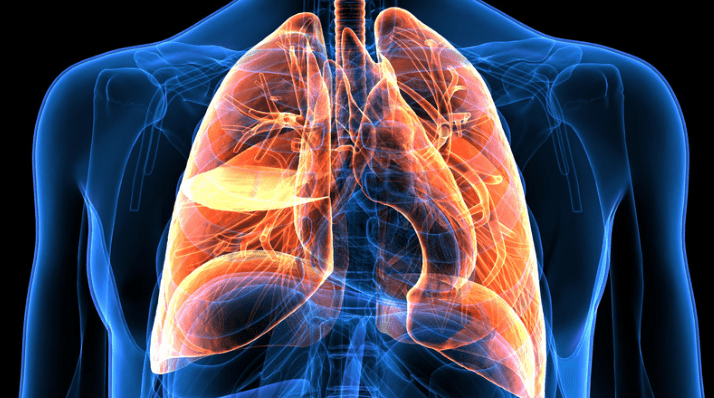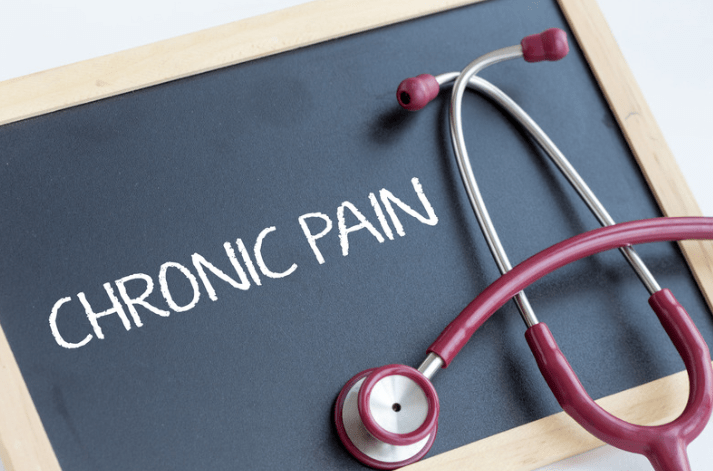Chronic pain is one of the most common health problems in the United States, affecting more than 20 percent of adults. It can be caused by various factors, including injury, arthritis, nerve damage, and chronic medical conditions such as cancer. It can also occur without an obvious cause.
Chronic pain can have a profound effect on your quality of life. It can interfere with your ability to work, play, and sleep. It can also lead to depression and anxiety. In addition, chronic pain can weaken your immune system.
In this article, we’ll explore how chronic pain affects your immune system and what you can do to keep your immune system strong.

What Is the Immune System?
The immune system is a complex combination of cells and tissues that working in accordance to protect the human body from infection. The immune system attacks foreign invaders, such as viruses, bacteria, and fungi. It also helps to repair damaged tissue and fight cancer cells.
The immune system of humans comprises two main parts: the innate and adaptive.
- The innate system is first defense line against any infection. It consists of physical barriers, such as the skin and mucous membranes and white blood cells that attack invading organisms.
- The adaptive immune system is a more sophisticated system that produces antibodies to fight specific infections.
The immune system is constantly changing and adapting to the threats it encounters. This process is known as immunization. When the immune system encounters a new pathogen, it produces antibodies to fight it. These antibodies remain in the body, providing immunity against future infections with that same pathogen.
Understand the Pain System
The pain system is the body’s way of responding to tissue or potential damage. It is a complex system that involves many different types of cells, proteins, and receptors.
The pain system can be divided into two main types: nociceptive and neuropathic.
- Nociceptive pain is caused by damaged tissue or stimulation of special nerve endings called nociceptors. Nociceptors are found in the skin, muscles, joints, and organs. They send signals to the brain (central nervous system) that result in the perception of pain.
- Neuropathic pain is caused by damage to or dysfunction of the nervous system. It can occur due to diseases like diabetes, injuries like spinal cord injury, or conditions like fibromyalgia.

How Does Chronic Pain Affect The Immune System?
Chronic pain can have a negative impact on the immune system. For example, chronic pain can:
- Decrease the number of white blood cells in circulation
- Alter the production of cytokines, which are chemicals that regulate the immune response
- Increase inflammation
- Impair the ability of natural killer cells to kill cancer cells
These changes can make the body more susceptible to infection and disease. In addition, chronic pain can make it difficult for the body to recover from illness or injury. In some cases, the stress response may also lead to a reduction in immune cells (T-cells), leading to a stress impact on immune system function.
Several types of research about how chronic pain affects the immune system. The pain can lead to impacts on the immune system in the form of:
- Immunodeficiencies: A study found that people with chronic pain were more likely to develop immunodeficiencies, which are conditions that cause the immune system to function improperly.
- Autoimmune Diseases: Chronic pain may also be a risk factor for autoimmune diseases, disorders in which the body attacks itself.
- Infections: People with chronic pain may be more susceptible to infections due to the changes in their immune systems.
- Cancer: The changes in the immune system caused by chronic pain may also make people more likely to develop cancer.
If you are experiencing chronic pain, you must talk to your doctor about the potential risks to your health. Chronic pain treatment can help reduce the impact on your immune function and improve your overall health.

FAQs
1. What Is Chronic Pain?
Chronic pain is defined as pain that lasts for more than 12 weeks. It can be caused by an injury, illness, or disease. Also, chronic pain may result from a previous injury that has not healed properly.
2. What Are The Types Of Chronic Pain?
There are four main types of chronic pain:
- Nociceptive Pain: This type of pain is caused by damage to tissue. It can be either dull and aching or sharp and stabbing.
- Neuropathic Pain: This type of pain is caused by damage to the nervous system. It can cause tingling, numbness, or burning sensations.
- Inflammatory Pain: This type of pain is caused by inflammation. It can be either acute (short-term) or chronic (long-term).
- Functional Pain: This type of pain is caused by a dysfunction in the body. It can be either primary (the cause is unknown) or secondary (the cause is known).
3. What Are The Causes Of Chronic Pain?
There are many possible causes of chronic pain, including:
- Injury: An injury to the body can cause chronic pain. This can include a sports injury, car accident, or work-related injury.
- Illness: Certain illnesses can cause chronic pain. This includes conditions such as arthritis, cancer, rheumatoid arthritis, and fibromyalgia.
- Disease: Diseases such as diabetes and multiple sclerosis can cause chronic pain.
- Previous injury: A previous injury that has not healed properly can lead to chronic pain.
4. What Are The Symptoms Of Chronic Pain?
The symptoms of chronic pain vary depending on the type of pain. However, common symptoms include:
- Aching
- Burning
- Throbbing
- Stabbing
- Tingling
5. What Are The Complications Of Chronic Pain?
Chronic pain can lead to several complications, including:
- Depression: Chronic pain can cause depression. This is because the pain can be unbearable and prevent you from doing what you love.
- Anxiety: Chronic pain can also cause anxiety. This is because you may be worried about the pain getting worse or about the causes of your pain.
- Sleep Problems: Chronic pain can make falling asleep and staying asleep difficult. This is because the pain can make it hard to relax.
- Fatigue: Chronic pain can also cause fatigue. This is because the pain can make it difficult to get a good night’s sleep.
- Addiction: Some people with chronic pain may turn to drugs or alcohol to cope with the pain. This can lead to addiction.
6. How Is Chronic Pain Diagnosed?
When you’re in pain, it’s tempting to sit around and do nothing. But this is the worst thing you can do. Exercise is one of the most effective ways to reduce pain. Even if you can’t do a full workout, try to get some gentle movement into your day. Taking a walk or doing some light stretching can make a big difference. Come up with your own pain flare management plan whether it’s chronic or acute pain.

Summing Up
Chronic pain can lead to several complications, including:
Depression: Chronic pain can cause depression. This is because the pain can be unbearable and prevent you from doing what you love.
Anxiety: Chronic pain can also cause anxiety. This is because you may be worried about the pain getting worse or about the causes of your pain.
Sleep Problems: Chronic pain can make falling asleep and staying asleep difficult. This is because the pain can make it hard to relax.
Fatigue: Chronic pain can also cause fatigue. This is because the pain can make it difficult to get a good night’s sleep.
Addiction: Some people with chronic pain may turn to drugs or alcohol to cope with the pain. This can lead to addiction.
